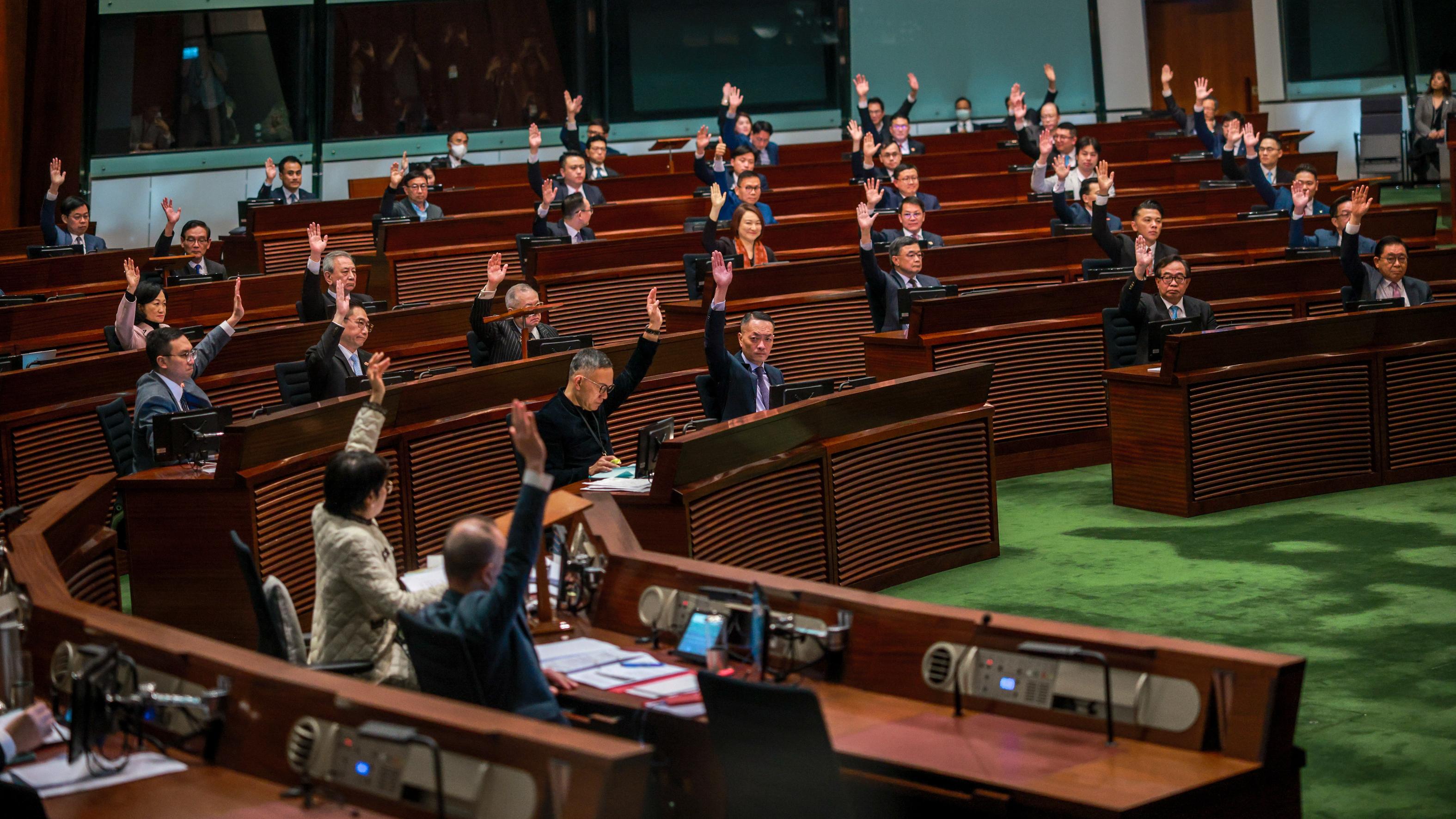 Lawmakers raise their hands as they vote to pass on second reading the proposed Safeguarding National Security Ordinance at the Legislative Council in Hong Kong on March 19, 2024. (ANDY CHONG / CHINA DAILY)
Lawmakers raise their hands as they vote to pass on second reading the proposed Safeguarding National Security Ordinance at the Legislative Council in Hong Kong on March 19, 2024. (ANDY CHONG / CHINA DAILY)
Foreign legal experts and opinion leaders praised the Safeguarding National Security Ordinance, which was approved by the city’s legislature on Tuesday, for adopting forward-looking approaches in line with global standards.
They also expressed confidence that the new law will provide stability for businesses operating in Hong Kong.
Grenville Cross, senior counsel and former director of public prosecutions of the Hong Kong Special Administrative Region, expressed support for a government-proposed amendment to the bill. This amendment empowers the chief executive, after consulting with the Executive Council, to create subsidiary legislation to safeguard national security.
Praising the proposal as being “forward-looking”, Cross said the power to issue subsidiary legislation ensures comprehensive protection and is constitutionally legitimate.
He added that this power is essentially precautionary and designed to address potential gaps in the city’s defensive network.
ALSO READ:Smearing of SAR new national security law 'destined to fail'
Reporting positive feedback from the business community, David Meyer, a senior lecturer at Washington University in St Louis, recalled his interviews with some business leaders based in Hong Kong in December. Contrary to fears, the surveyed business leaders agreed that the national security ordinance would protect their businesses and provide stability for their operations. Meyer is also professor emeritus of sociology and urban studies at Brown University.
Richard Cullen, an adjunct professor in the Faculty of Law at the University of Hong Kong, said the ongoing national security trial of Apple Daily founder Jimmy Lai Chee-ying provides context for the legislation.
Lai is facing several charges, including conspiracy to collude with external forces to endanger national security, under the National Security Law for Hong Kong (NSL), which was passed by the National People’s Congress Standing Committee in June 2020.
The locally legislated ordinance will complement the NSL. Cullen said that the evidence emerging from Lai’s trial highlights the necessity of legislative work updates.
ALSO READ: NPC applauds passage of safeguarding national security bill
Tom Fowdy, a British political and international relations analyst, countered the arguments of some critics of the legislation who cited the Sino-British Joint Declaration.
He acknowledged that it is a constitutional responsibility for Hong Kong to enact a local national security law, as mandated by the city’s Basic Law. He emphasized that national security is China’s sovereign right and falls outside the scope of the Sino-British Joint Declaration.
Fowdy further questioned the illogical criticism of the Western mainstream media, which claimed that implementing such a law would undermine Hong Kong’s status as an international financial center.
He pointed to the presence of even stricter national security laws in Singapore and said that the same logic has not been applied to that.


